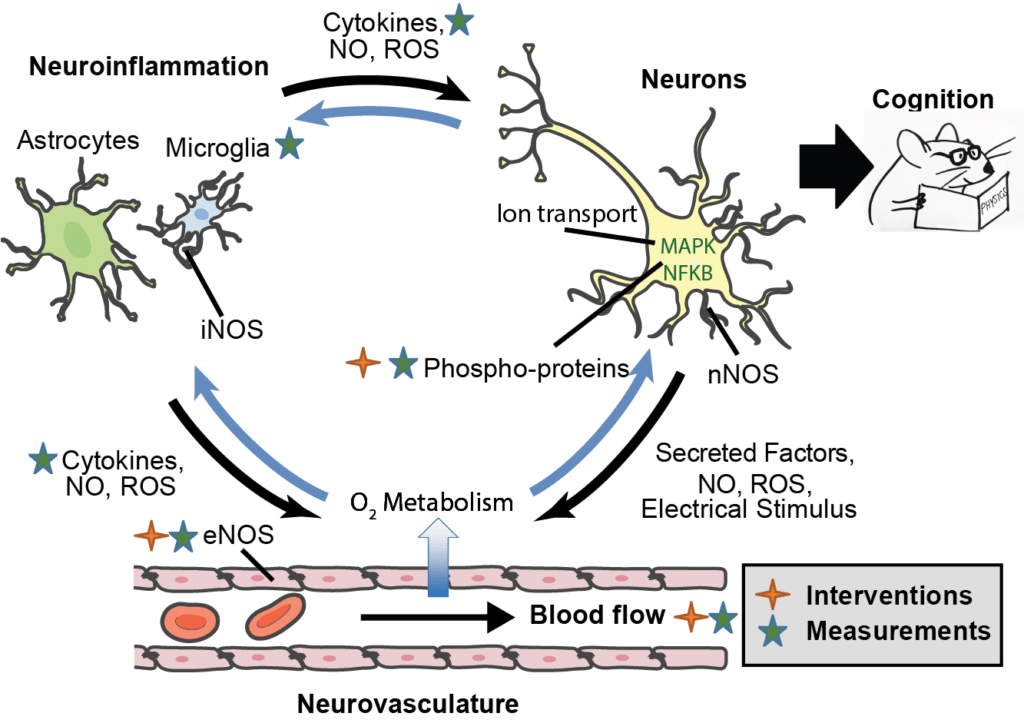In January, the Buckley lab was awarded a 4 year R01 from the NIH/NHLBI to investigate the utility of NIRS/DCS to study the brain in children with sickle cell disease. Children with sickle cell disease have a high risk of silent stroke and cognitive deficits caused in part by anemia-induced changes in tissue-level brain blood flow, cerebrovascular reactivity, and oxygen extraction. This project will determine if NIRS/DCS are sensitive to changes in the brain associated with these silent strokes and their treatment. Our long-term goal is to develop a low-cost brain monitoring tool that can screen for silent infarct risk in pediatric sickle cell disease to facilitate timely therapeutic intervention.

Hypothesized mechanism of ischemic injury in pediatric sickle cell disease (Adapted from Juttukonda, JMRI 2019). As anemia worsens, arterial oxygen content is reduced. To compensate for this reduction, the cerebrovasculature dilates to increase blood flow (red). As vascular reserve is exhausted and flow plateaus, oxygen extraction fraction (blue) increases to preserve oxygen metabolism (green). Eventually there is a mismatch between tissue metabolic demand (dotted black) and oxygen metabolism, and infarction ensues. Transfusion acts to increase oxygen delivery and is thought to relieve metabolic stress by reducing oxygen extraction and blood flow and improving vascular reserve.
